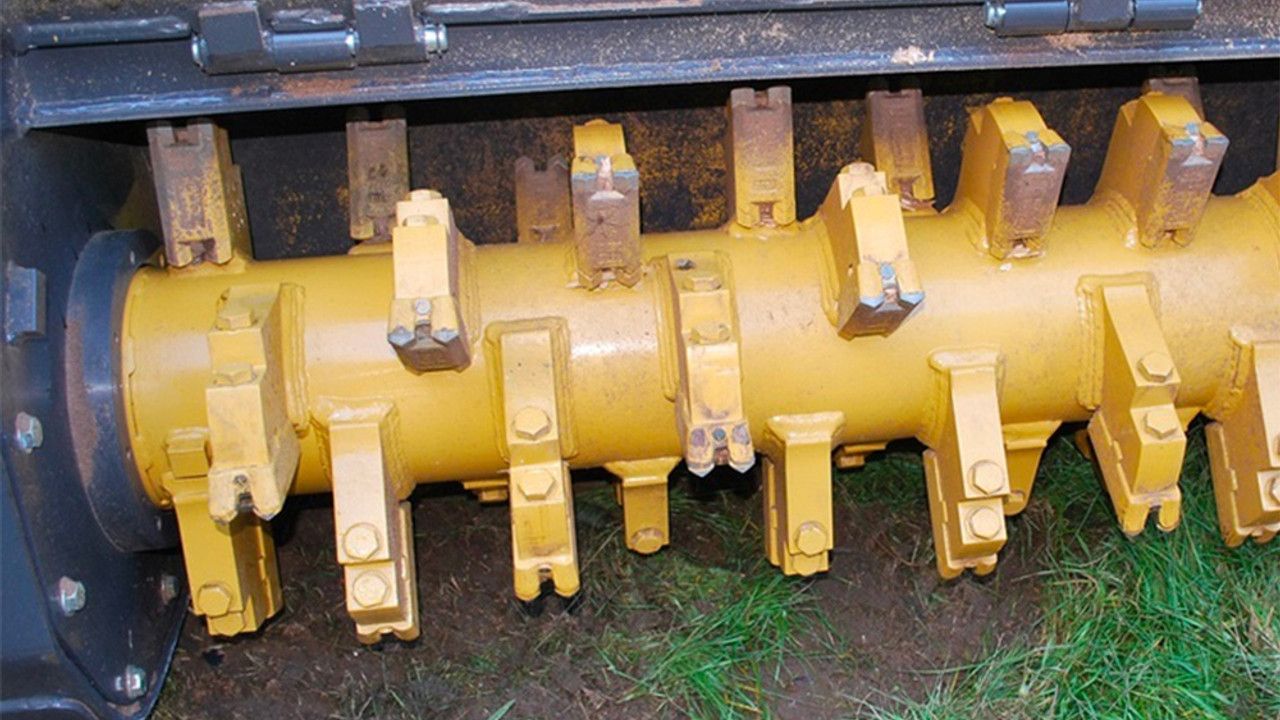Efficiency, durability, and performance are a necessity in the hard world of forestry and land-clearing activities. Forestry contractors are also dependent on their equipment to cut thick vegetation, hardwood trees, and rough terrain. Among other factors that help in the effectiveness of a mulcher, teeth have become the most important. These cutting tools experience constant impact, friction, and pressure, and quality has a direct impact on the productivity and maintenance cost. It is due to these reasons that more and more forestry professionals opt to use tungsten carbide mulcher teeth. Tungsten carbide mulcher teeth are known to be highly hard and durable, and thus have emerged as the industry standard of reliable and high-performance land-clearing equipment.
The Importance of Mulcher Teeth in Forestry Operations
Mulcher teeth are used to cut the vegetation into fine mulch as they are the cutting tool of the forestry machines. Whatever the duty may be, be it underbrush clearing, cutting trees down, or clearing a land ready to build a structure, the teeth are exposed to extreme pressure. Mundane steel teeth might be good enough to work with light jobs, but in a forestry project where trees, rocks, and stumps are the most frequent type of obstacles, they are quick to wear out.
This continuous wear not only decreases efficiency but also causes downtime and expensive changes. Forestry contractors are aware of the fact that their tools have to perform on a regular basis in harsh conditions. Tungsten carbide is a substance that increases the cutting potential and durability of mulcher teeth.
Superior Cutting Efficiency and Consistency
Forestry contractors prefer tungsten carbide mulcher teeth, which, besides being tough, cut with precision. The cutting edge is sharper and harder, allowing a cut through vegetation with minimum resistance and putting a lesser load on the engine and hydraulic system of the mulcher. Such efficiency results in machines that are more efficient and able to work at a higher rate, use less fuel, and work smoothly.
Another great advantage is consistency. The cutting quality of tungsten carbide teeth will be the same hours after the operation. The regular teeth tend to lose their advantage, resulting in unusual cuts, more vibration, and slower work. However, carbide-tipped teeth hold their shape and sharpness, meaning sustained productivity and a cleaner mulch finish. This is a very high level of reliability, which is necessary in cases of contractors with huge portions of land and who are not in a position to afford to be interrupted due to the failure of machinery.
Flexibility in Harsh Environments
In the case of forestry work, the ideal conditions are hardly involved. Unpredictable soil: different contractors have to cope with hills, forests, clay soils, sand, etc. These conditions can easily erode the traditional teeth and make them less efficient, with high costs of operations. However, tungsten carbide mulcher teeth are made to be able to cope with such challenges.
The high wear resistance and impact strength of the material allow it to be in contact with rocks and debris several times without damage. The carbide teeth can be used in both hard and softwoods, even in abrasive conditions, as they are maintained in cutting. The fact that they can preserve their structure even when subjected to extreme pressure gives the contractors the assurance that they can complete various and even demanding tasks without having to be taken off the job on a regular basis.
Reduced Downtime and Operational Costs
Less downtime and general operating costs are among the major factors that forestry contractors believe in tungsten carbide mulcher teeth. Any minute that the machine is idle means a loss of productivity and possible revenue. Normal teeth have to be sharpened or replaced frequently, and this may disrupt the flow of work and postpone the projects.
However, tungsten carbide teeth have a life of up to four times that of conventional steel teeth. Their longevity in wear implies the reduction of maintenance cycles and the decreased cost of labor to fix them. Also, the load exerted on the components of the machine is lowered, which increases the life of the mulcher itself. These savings translate into a significant competitive edge to the contractors operating on several projects or massive clear-cut operations.
Conclusion
Tungsten carbide mulcher teeth have been the ultimate alternative to forestry contractors since they are unique in terms of durability, efficiency, and reliability. Their capacity to survive under extreme conditions, remain sharp, and have lower downtime is an obvious advantage to the professional in terms of productivity and cost management. Tungsten carbide still ranks as the preferred high-performance mulcher teeth material because of the tougher, faster, and more sustainable solutions that are required in the forestry operations. Investing in these cutting-edge tools, contractors will guarantee the quality of the results delivered by their equipment, even in the most difficult conditions, which will eventually result in smoother operations and increased profitability in the long run.


